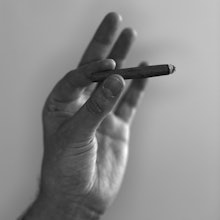5 Substances That Are Far More Addictive Than Marijuana — That Are Legal

One of the misconceptions about marijuana is that it is highly addictive, but according to the National Institute on Drug Abuse, studies suggest only 9% of marijuana users become dependent on the drug. Marijuana addiction is also viewed as implicitly dangerous, but the history of its perceived danger is tied to racism.
According to Malik Burnett, former surgeon and physician advocate, and Amanda Reiman, a lecturer on drug and alcohol policy at the University of California, Berkeley, marijuana was criminalized in the 1900s as a way to police "disruptive" Mexican immigrants and their "native" behaviors — similar to how opium was criminalized in order to police Chinese immigrants decades earlier.
As the nation continues to debate and vote on marijuana legalization, about how marijuana has ruined lives and is a gateway to harder stuff, it's good to gain some perspective on other seemingly innocuous substances that are already legal, yet can be equally addictive and as "dangerous" as marijuana.
Read more: Marijuana Potency Has Changed Drastically Over Time — Just Ask Your Parents
Alcohol
According to statistics compiled by the Centers for Disease Control and Prevention, excessive drinking (defined as four drinks or more for women, and five drinks or more for men in a single occasion along with underage drinking, drinking while pregnant) was the cause for around 88,000 reported deaths in the United States between 2006 and 2010.
Tobacco cigarettes
The CDC reports that tobacco cigarettes cause about 90% of all lung cancer deaths. Additionally, "The risk of dying from cigarette smoking has increased over the last 50 years in men and women in the United States," according to the CDC.
Sugar
"What's tricky about sugar is that it is socially acceptable, and often thought of as a 'treat' when it really should be thought of as 'toxic.' Research shows that sugar can be even more addicting than cocaine," Cassie Bjork, a registered dietician, told Healthline.
"Sugar activates the opiate receptors in our brain and affects the reward center, which leads to compulsive behavior, despite the negative consequences like weight gain, headaches, hormone imbalances and more."
Caffeine
According to the studies of Roland Griffiths, a professor of psychiatry and neuroscience at Johns Hopkins University, latest research found that "when people don't get their usual dose they can suffer a range of withdrawal symptoms, including headache, fatigue, difficulty concentrating." Some caffeine addicts can even have flu-like symptoms like muscle pain and nausea.
Cough syrup
Or more accurately, dextromethorphan, the ingredient found in most over-the-counter cough medicines. According to recent studies, low doses of dextromethorphan is benign, but when cough syrup dosage is abused, it can produce "a psychotropic effect similar to that of alcohol."